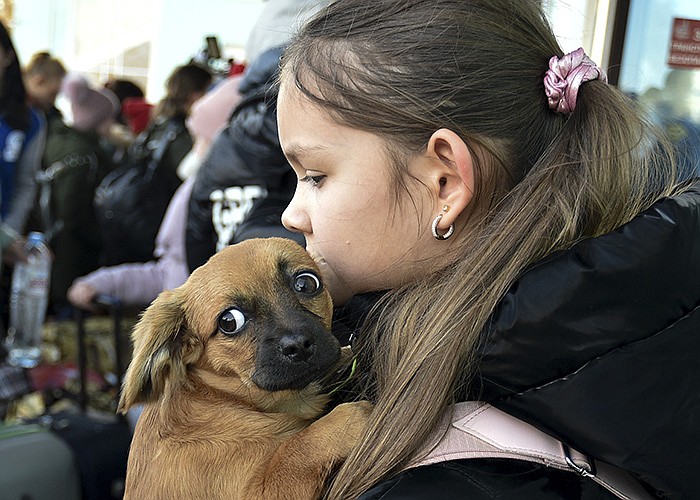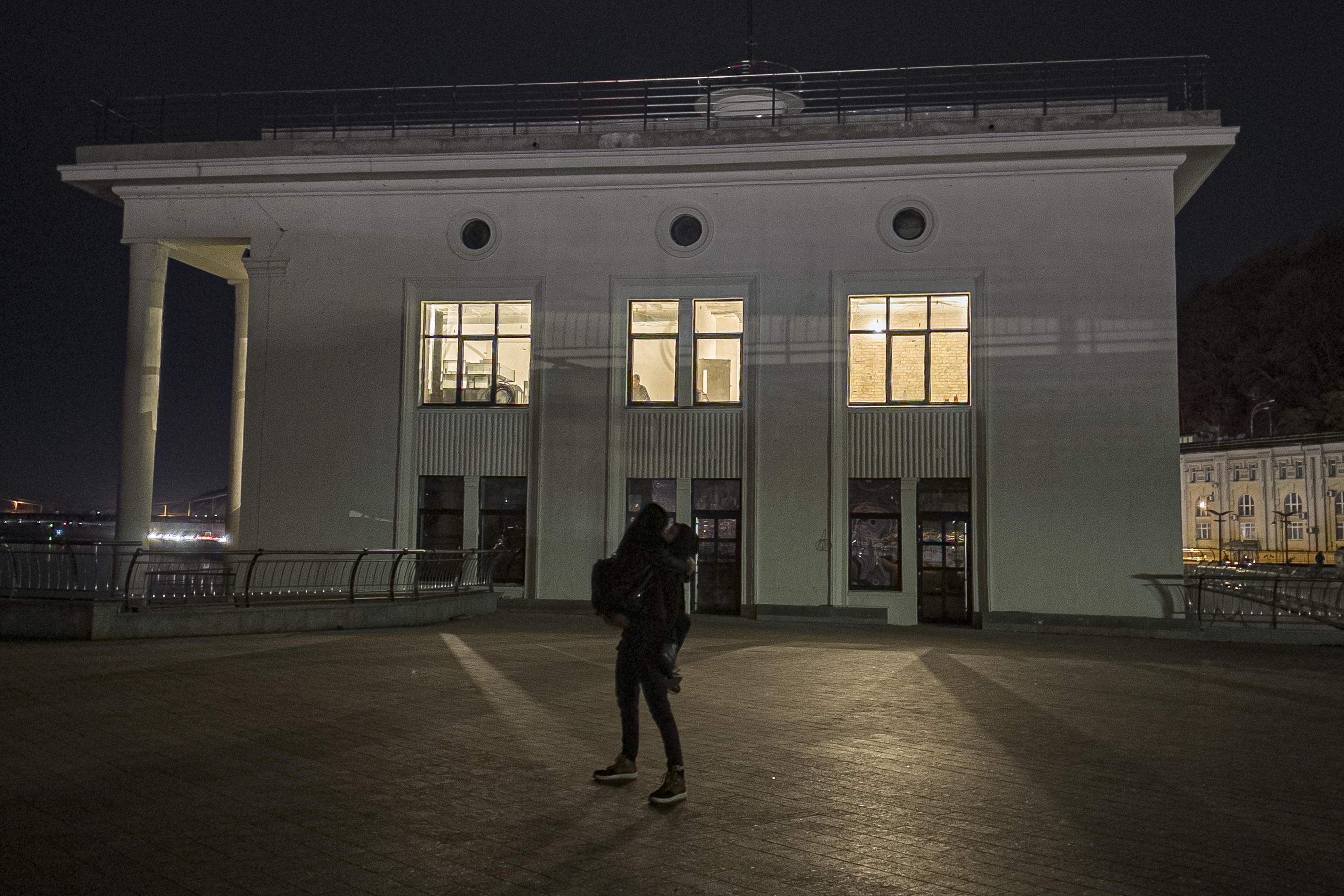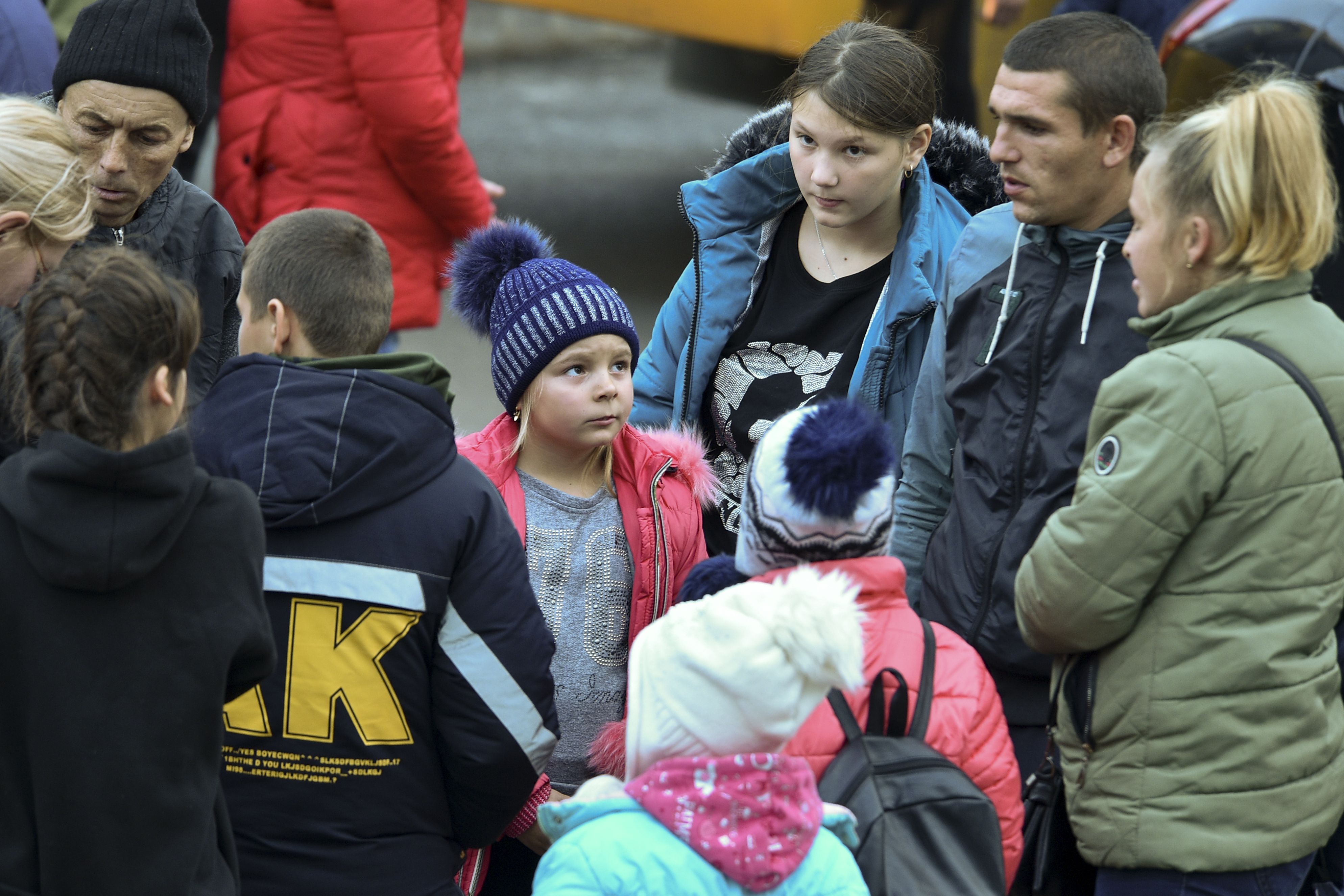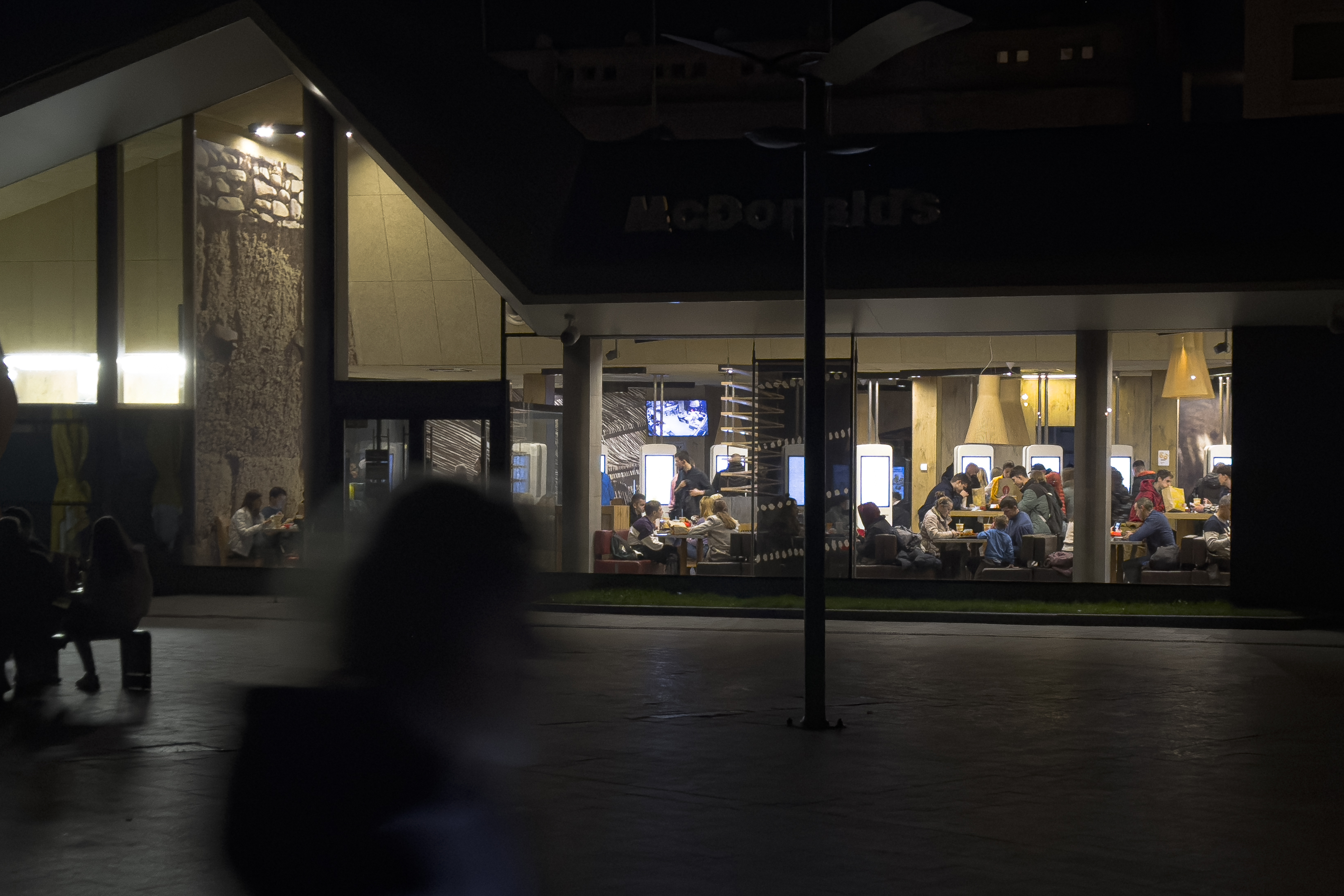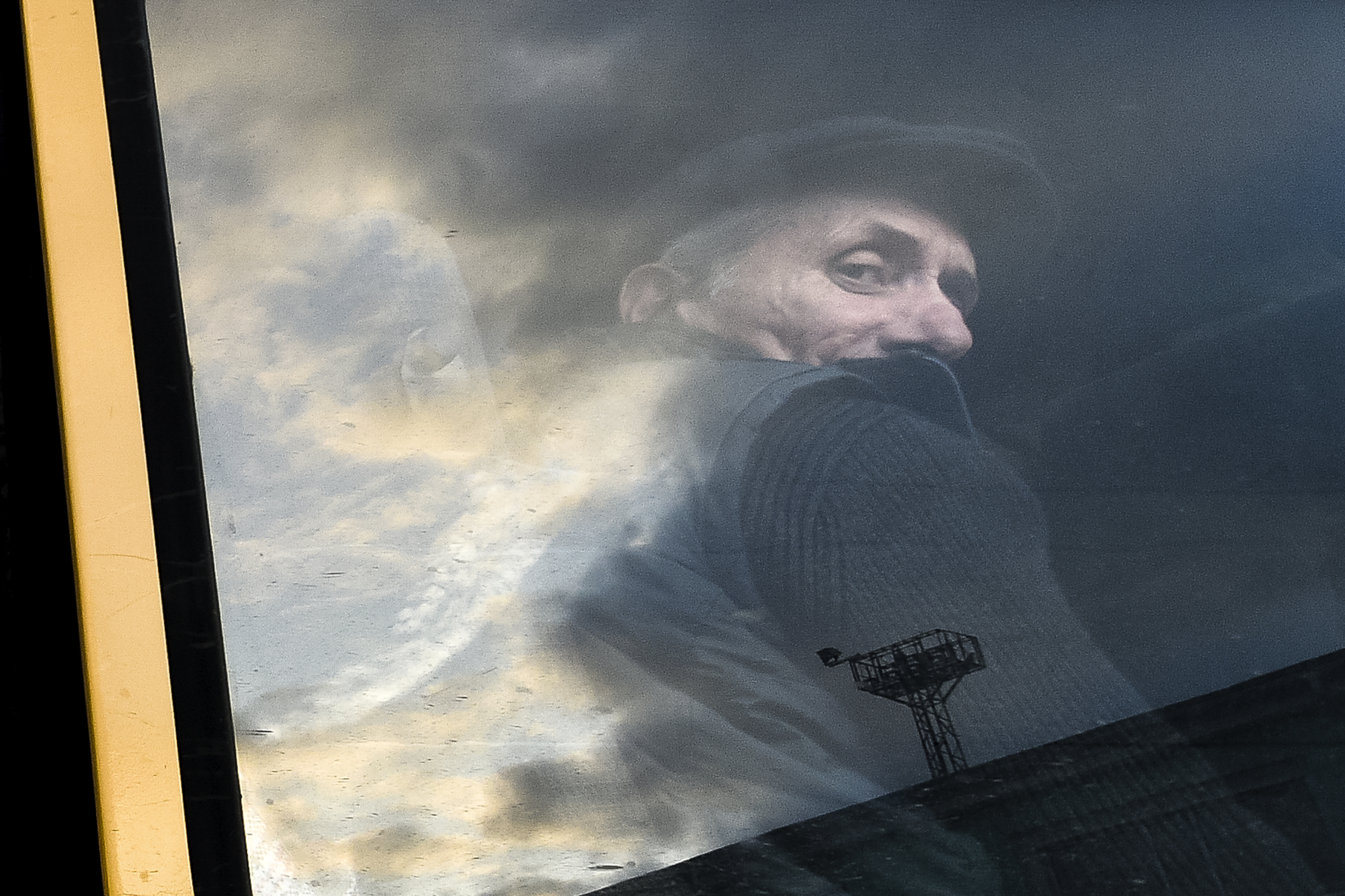KYIV, Ukraine -- Russia agreed Wednesday to rejoin a wartime agreement that allows Ukrainian grain and other commodities to be shipped to world markets. The U.N.'s refugee chief, meanwhile, put the number of Ukrainians driven from their homes since the Russian invasion eight months ago at around 14 million.
It is "the fastest, largest displacement witnessed in decades," said Filippo Grandi, who heads the United Nations High Commissioner for Refugees.
In announcing that Russia would rejoin the grain pact, President Vladimir Putin said Moscow had received assurances that Ukraine would not use the humanitarian corridors to attack Russian forces. He warned that Russia reserves the right to withdraw again if Kyiv breaks its word.
Putin praised Turkey's mediation efforts to get the deal back on track, as well as Turkish President Recep Tayyip Erdogan's "neutrality in the conflict as a whole" and his efforts at "ensuring the interest of the poorest countries."
Ukrainian President Volodymyr Zelenskyy said he also thanked Erdogan on Wednesday, "for his active participation in maintaining the grain agreement, and his unwavering support for the sovereignty and territorial integrity of Ukraine."
Russia had suspended its participation in the grain deal over the weekend, citing an alleged drone attack against its Black Sea fleet in Crimea.
Ukraine did not claim responsibility for an attack, and Zelenskyy said Wednesday that Moscow's return to the agreement showed "Russian blackmail did not lead to anything."
Erdogan said shipments would resume Wednesday, prioritizing those to African nations, including Somalia, Djibouti and Sudan. That's in line with Russia's concerns that much of the exported grain had ended up in richer nations, since Moscow and Kyiv made separate agreements with Turkey and the U.N. in July.
U.N. humanitarian chief Martin Griffiths said Monday that 23% of the cargo exported from Ukraine under the grain deal went to lower- or lower-middle-income countries, which also received 49% of all wheat shipments.
U.N. Secretary-General Antonio Guterres hailed Russia's announcement, and a spokesman said Guterres "remains committed to removing the remaining obstacles to the exports of Russian food and fertilizer."
Ukraine and Russia are major global exporters of wheat, barley, sunflower oil and other food to developing countries. A loss of those supplies before the grain deal had pushed up global food prices, led to soaring energy costs, and helped throw tens of millions into poverty.
The July agreement brought down global food prices about 15% from their peak in March, according to the U.N. After the announcement Wednesday that Russia would rejoin the deal, wheat futures prices erased increases seen Monday, dropping more than 6% in Chicago.
Meanwhile, in Kyiv, the local power-grid operator said electricity had been restored after a wave of Russian drone and artillery strikes had targeted energy infrastructure. About 300,000 households reportedly got their power back, but local authorities called for controlled blackouts to reduce strain on the system.
Grandi, the U.N. refugee official, noted that Ukrainians are about to face "one of the world's harshest winters in extremely difficult circumstances."
He said those include the continuing destruction of civilian infrastructure, which is "quickly making the humanitarian response look like a drop in the ocean of needs."
Grandi said the 14 million Ukrainian refugees had increased the overall number of displaced people worldwide to more than 103 million.
Power outages also were reported in the southern cities of Nikopol and Chervonohryhorivka after "a large-scale drone attack," Dnipropetrovsk Gov. Valentyn Reznichenko said. The two cities lie across the Dnieper River from the huge Zaporizhzhia Nuclear Power Plant.
Russia and Ukraine have traded blame for months for shelling at and around the plant that the U.N.'s nuclear watchdog warned could cause a radiation emergency. In a development easing some fears, Ukraine's state nuclear company Energoatom, said the plant has been reconnected to the country's power grid after shelling forced it to rely on generators to cool spent nuclear fuel.
The plant is held by Russian forces, but Ukrainian staff continues to run it.
The company also said Russian soldiers have cordoned off the plant's spent nuclear-fuel storage facility and begun unspecified construction there. "They don't let anyone in, they don't report anything," the company said.
Russian shelling continued in southern and eastern Ukraine, causing at least four civilian deaths between Tuesday and Wednesday, according to Zelenskyy's office.
"The epicenter of the fighting" was around the city of Bakhmut, neighboring Soledar and the wider Donetsk region, Ukraine's Deputy Defense Minister Hanna Malya told Ukrainian TV. She said Ukrainian defenders around Bakhmut were facing a "very difficult" task.
"But the main thing is that Ukraine will not give up a single inch of land," she said.
In southern Ukraine, Russian-installed authorities in the occupied Kherson region announced they were temporarily halting traffic across the wide Dnieper River, citing "increased military danger" as Kyiv's forces edged closer to the region's capital, the city of Kherson.
The move would also prevent civilians from crossing back into Ukrainian-held territory.
The Moscow-backed authorities have said they are relocating tens of thousands of civilians further into Russian-held territory in anticipation of the Ukrainian counterattack.
The province was overrun by Russian forces early in the war, and both sides have been girding for a major battle over it.
North KOREA ACCUSED OF COVERT SUPPORT
The White House on Wednesday accused North Korea of covertly shipping a "significant number" of artillery shells to Russia in support of its invasion of Ukraine.
National Security Council spokesman John Kirby said the U.S. believes North Korea is "trying to make it appear as though they're being sent to countries in the Middle East or North Africa." He declined to provide a specific estimate on the quantity of ammunition being sent to bolster the Russian effort.
Kirby said North Korea "is covertly supplying" the ammunition to Russia, but that, "we're still monitoring this to determine whether the shipments are actually received." He added that the U.S. has "an idea" of which country or countries the North may funnel the weapons through but wouldn't specify, because the administration continues to look at how it might respond to North Korea's actions.
Kirby insisted the North Korean shipments are "not going to change the course of the war," citing Western efforts to resupply the Ukrainian military.
The White House would not specify the mode of transportation or whether the U.S. or other nations would attempt to interdict the shipments to Russia.
The White House revealed the new intelligence nearly two months after first alleging that U.S. intelligence officials had determined the Russian Ministry of Defense was in the process of purchasing millions of rockets and artillery shells from North Korea for its ongoing fight in Ukraine.
Even as the administration revealed information about the covert North Korean artillery shell shipments, the White House also ought to downplay their significance.
"We don't believe that they are in such a quantity that they would change the direction of this war or tangibly change the momentum either in the east or in the south" where some of the heaviest fighting in Ukraine is taking place, Kirby said.
The finding comes after the Biden administration in August said the Russian military took delivery of hundreds of Iranian-manufactured drones for use on the battlefield in Ukraine. The Biden administration said Iran has also sent personnel to Russian-controlled Crimea to provide technical support on operation of the drones. Iranian officials have denied they have provided drones or other support to Russia.
North Korea has sought to tighten relations with Russia as much of the West has pulled away, blaming the United States for the Ukraine crisis and decrying the West's "hegemonic policy" as justifying military action by Russia in Ukraine to protect itself.
The North Koreans have shown interest in sending construction workers to help rebuild Russian-occupied territories in Ukraine's east.
North Korea's ambassador to Moscow has met with envoys from two Russia-backed separatist territories in the Donbas region of Ukraine and expressed optimism about cooperation in the "field of labor migration," citing his country's easing of pandemic border controls.
In July, North Korea became the only nation aside from Russia and Syria to recognize the independence of the territories, Donetsk and Luhansk, further aligning with Russia over the conflict in Ukraine.
The North's arms export to Russia would be a violation of U.N. resolutions that ban the country from exporting to or importing weapons from other countries. Its possible dispatch of laborers to the Russian-held territories in Ukraine would also breach a U.N. resolution that required all member states to repatriate all North Korean workers from their soil by 2019.
RUSSIA LOSES AT U.N.
The U.N. Security Council on Wednesday overwhelmingly rejected Russia's attempt to establish a commission to investigate its unfounded claims that Ukraine and the United States are carrying out "military biological" activities that violate the convention prohibiting the use of biological weapons.
Russia only got support from China in the vote on its resolution, with the U.S., Britain and France voting "no" and the 10 other council nations abstaining. The resolution was not approved because it failed to get the minimum nine "yes" votes required for adoption.
The 2-3-10 vote reflected the council's continuing opposition and skepticism about Russia's actions since its Feb. 24 invasion of Ukraine. The council has been paralyzed from taking any action against Russia's military offensive because of Russia's veto power.
Russia circulated the draft resolution and a 310-page document to council members last week alleging that military biological activity is taking place at biological laboratories in Ukraine with support from the U.S. Defense Department.
Russia's deputy ambassador Dmitry Polyansky said after the vote that his government was "extremely disappointed" that the council did not respond positively to its request to establish a commission. Its proposed resolution called for the Security Council's 15 members to carry out the investigation of Russia's complaint, as allowed under Article VI of the biological weapons convention, and present a report with recommendations to the council by Nov. 30.
Polyansky claimed "Western countries demonstrated in every way that the law does not apply to them" and "are ready to trample any norm, to flout any rule," accusing them of a "colonial mentality."
U.S. Ambassador Linda Thomas-Greenfield countered that the United States voted against the resolution "because it is based on disinformation, dishonesty, bad faith, and a total lack of respect for this body."
Before the vote, Russia's Polyansky called the resolution "a considerable milestone" that would show whether the Security Council was prepared to act in line with international law giving state parties to the biological weapons convention the right to seek an investigation at the Security Council.
"It is a milestone for Russia's deception and lies," Thomas-Greenfield shot back. "And the world sees it."
At a meeting in September of the 197 state parties to the biological weapons convention, she said, "Russia failed to provide any credible evidence to support these false allegations" and an overwhelming number of countries that spoke "considered that the issues raised by Russia were unsubstantiated and had been conclusively addressed."
But Thomas-Greenfield said that wasn't enough for Russia and "it inappropriately raised the same false claims here, abusing its position and abusing us."
Mexico's deputy ambassador Juan Manuel Gomez Robledo, whose country abstained, said Russia didn't provide evidence to activate an investigation. He said it was not "realistic" to set up a commission to report in 28 days -- and a commission could not be independent and objective if Russia as a council member was included so it would have to be excluded "since it is one of the parties involved in the armed conflict."
Russia's initial allegation of secret American biological warfare labs in Ukraine in March has been disputed by independent scientists, Ukrainian leaders and officials at the White House and Pentagon. An Associated Press investigation in March found the claim was taking root online, uniting covid-19 conspiracy theorists, QAnon adherents and some supporters of former President Donald Trump.
Ukraine does have a network of biological labs that have gotten funding and research support from the U.S. They are owned and operated by Ukraine and are part of an initiative called the Biological Threat Reduction Program that aims to reduce the likelihood of deadly outbreaks, whether natural or manmade. The U.S. efforts date back to work in the 1990s to dismantle the former Soviet Union's program for weapons of mass destruction.
Information for this article was contributed by Andrew Meldrum, Suzan Fraser, Courtney Bonnell, Aamer Madhani, Zeke Miller, Edith M. Lederer and David Klepper of The Associated Press.
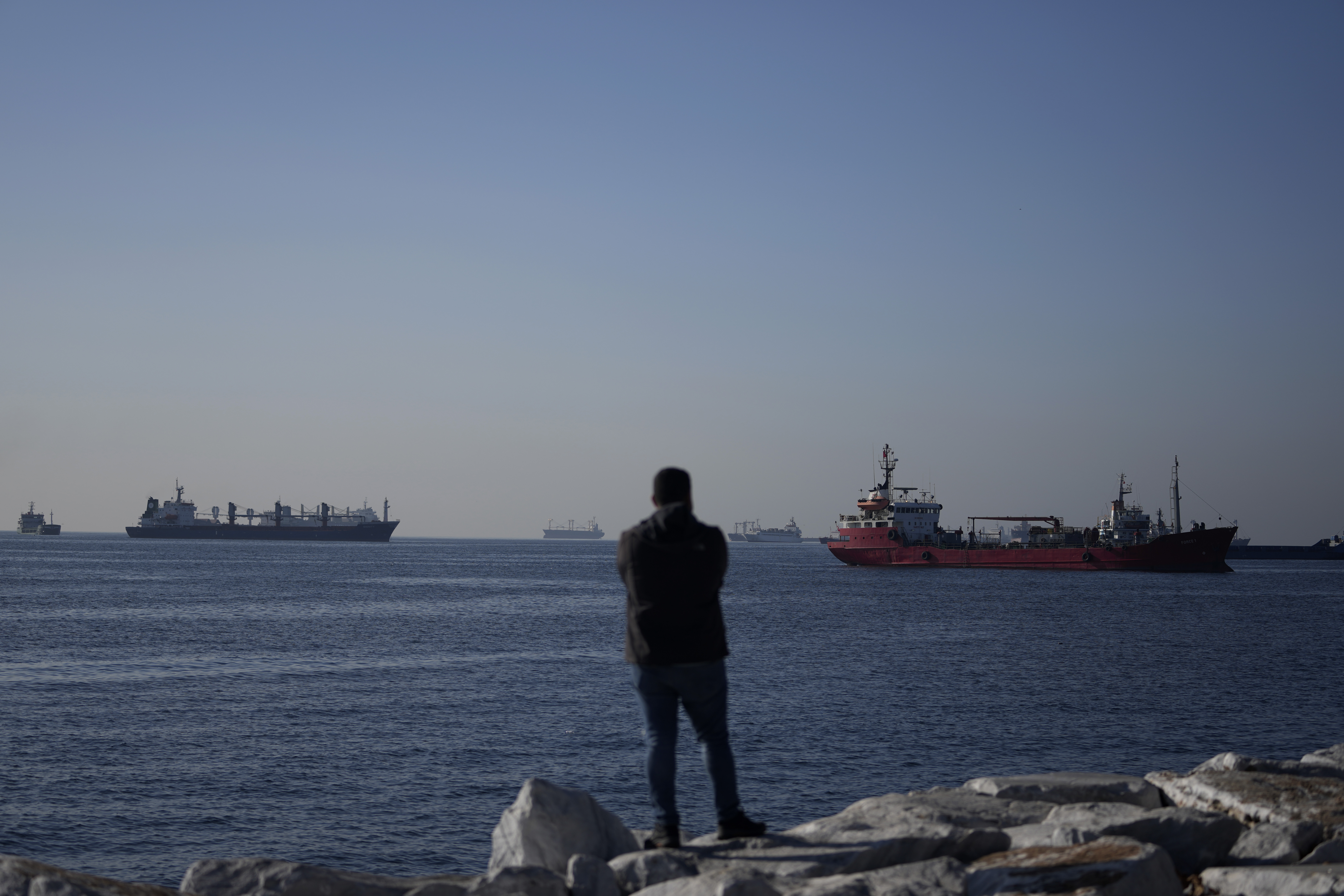 Cargo ships anchored in the Marmara Sea await to cross the Bosphorus Straits in Istanbul, Turkey, Tuesday, Nov. 1, 2022. Turkey's defense minister urged Russia to "reconsider" its decision to suspend the implementation of the U.N. and Turkish-brokered grain deal in a telephone call Monday with his Russian counterpart, Sergei Shoigu. (AP Photo/Khalil Hamra)
Cargo ships anchored in the Marmara Sea await to cross the Bosphorus Straits in Istanbul, Turkey, Tuesday, Nov. 1, 2022. Turkey's defense minister urged Russia to "reconsider" its decision to suspend the implementation of the U.N. and Turkish-brokered grain deal in a telephone call Monday with his Russian counterpart, Sergei Shoigu. (AP Photo/Khalil Hamra)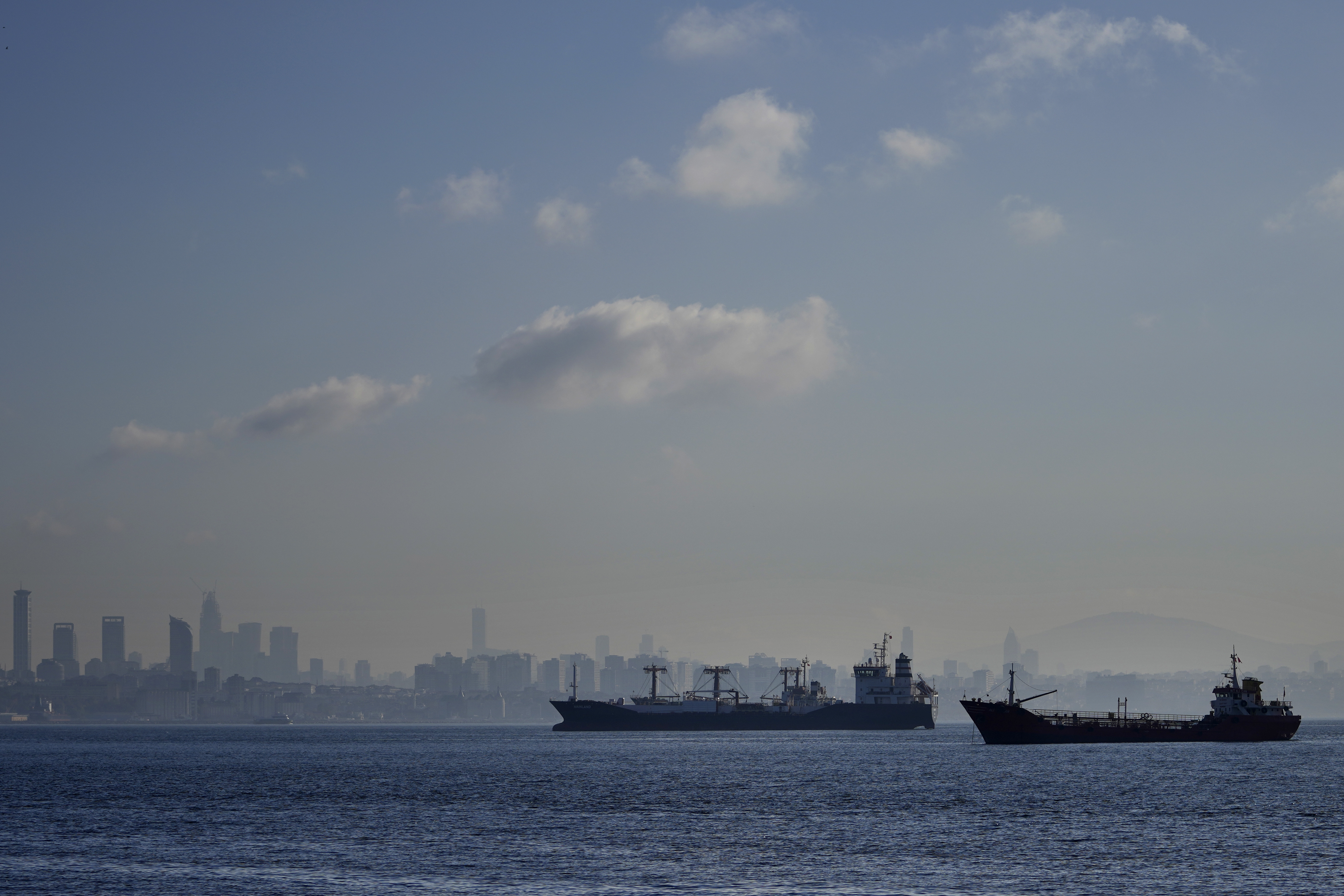 Cargo ships anchored in the Marmara Sea await to cross the Bosphorus Straits in Istanbul, Turkey, Tuesday, Nov. 1, 2022. Turkey's defense minister urged Russia to "reconsider" its decision to suspend the implementation of the U.N. and Turkish-brokered grain deal in a telephone call Monday with his Russian counterpart, Sergei Shoigu. (AP Photo/Khalil Hamra)
Cargo ships anchored in the Marmara Sea await to cross the Bosphorus Straits in Istanbul, Turkey, Tuesday, Nov. 1, 2022. Turkey's defense minister urged Russia to "reconsider" its decision to suspend the implementation of the U.N. and Turkish-brokered grain deal in a telephone call Monday with his Russian counterpart, Sergei Shoigu. (AP Photo/Khalil Hamra) Nurto Hassan, right, carries firewood to cook for her children, as other women displaced by the drought look on, at a camp for the displaced on the outskirts of Baidoa, in Somalia Saturday, Oct. 29, 2022. Ships loaded with grain departed Ukraine on Tuesday, Nov. 1, 2022 despite Russia suspending its participation in a U.N.-brokered deal that ensures safe wartime passage of critical food supplies meant for parts of the world struggling with hunger such as Somalia. (AP Photo/Mohamed Sheikh Nor)
Nurto Hassan, right, carries firewood to cook for her children, as other women displaced by the drought look on, at a camp for the displaced on the outskirts of Baidoa, in Somalia Saturday, Oct. 29, 2022. Ships loaded with grain departed Ukraine on Tuesday, Nov. 1, 2022 despite Russia suspending its participation in a U.N.-brokered deal that ensures safe wartime passage of critical food supplies meant for parts of the world struggling with hunger such as Somalia. (AP Photo/Mohamed Sheikh Nor)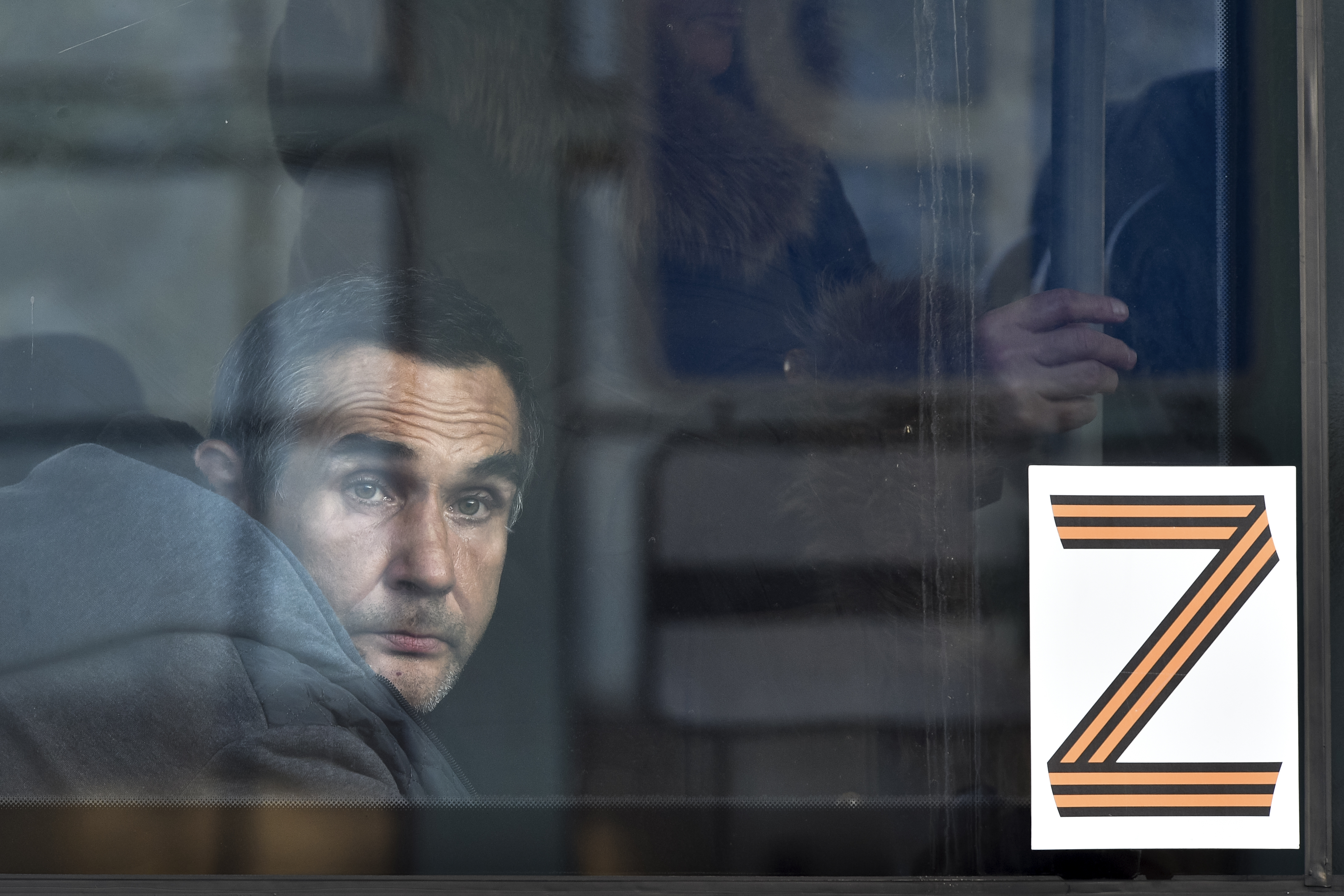 A man, an evacuee from Kherson, looks through a bus window decorated with the letter Z, which has become a symbol of the Russian military, at the railway station in Dzhankoi, Crimea, on Wednesday, Nov. 2, 2022. Russian authorities have encouraged residents of Kherson to evacuate, warning that the city may come under massive Ukrainian shelling. (AP Photo)
A man, an evacuee from Kherson, looks through a bus window decorated with the letter Z, which has become a symbol of the Russian military, at the railway station in Dzhankoi, Crimea, on Wednesday, Nov. 2, 2022. Russian authorities have encouraged residents of Kherson to evacuate, warning that the city may come under massive Ukrainian shelling. (AP Photo)